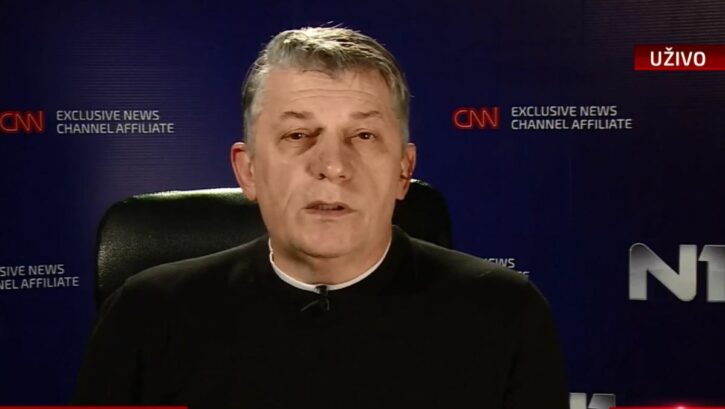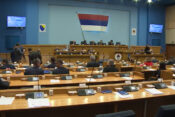
While some political analysts told N1 on Wednesday that the political crisis is just another one in a series of attempts to make Bosnia seem like a non-functional country, others said that it could be more serious than that since all Bosnian Serb parties expressed support for representatives of Bosnia's Serb-majority region blocking state institutions.
The parliament of the Serb-majority semi-autonomous part of Bosnia, Republika Srpska (RS), on Monday instructed its representatives in state institutions to stop participating in any decision-making processes until a law removing the foreign judges from the Constitutional Court is adopted.
The move came after the Constitutional Court declared that public agricultural property in Republika Srpska should be owned by the state and not by the RS.
According to the Constitution, which is part of the 1995 Dayton Peace Agreement, the Constitutional Court is composed of nine judges – two Bosniaks, two Croats, two Serbs and three foreigners. Bosnian Serb leader Milorad Dodik has been accusing the institution of working against Republika Srpska, arguing that the three foreign judges frequently side with the Bosniaks and outvote the Croats and the Serbs.
State institutions will now effectively be blocked.
Should no agreement on the Constitutional Court be reached, Dodik said that a solution could be for the RS to form its own state institutions and secede from the country.
“When we are speaking about Mr Milorad Dodik and his policy in Bosnia and Herzegovina, then any outcome is possible,” analyst Faruk Kajtaz told N1.
Kajtaz said that he thinks Dodik’s move is an “attempt to again present himself as the top protector of Serb political interests” after he experienced an “uncomfortable defeat.”
He was referring to the fact that Bosnia sent a document to NATO after which the alliance said that the country is participating in the Membership Action Plan – something Dodik was strongly opposed to.
The analyst said he thinks that after this, Dodik and his Alliance of Independent Social Democrats (SNSD) are trying to “return a nationalist reputation they had before.”
The newest political crisis is only the latest in a series of crises that are part of a political game that aims to portray Bosnia as a non-functional state, he said.
“If there are no real reasons for a crisis, then Dodik finds some,” he said, arguing that Dodik “functions best at moments of either a real or a projected political crisis.”
However, political analyst Zarko Papic believes that the situation could turn into something a lot more serious.
“We have gotten used to crises, there was a great number of crises, now that quantity is turning into negative quality. Something a lot more serious than we think is happening here,” Papic said.
Papic said that what needs to be made clear now when the possibility of the RS seceding is being mentioned is that “this is, in these circumstances, not possible.”
For analyst Milos Solaja, the decision by the RS National Assembly was to be expected.
“The moment when that decision was made public, it could be expected what would happen as the Constitutional Court has handed down similar decisions regarding Republika Srpska several times before, but those were mainly regarding identity issues – such as the coat of arms, the anthem, and issues regarding referendums,” he said.
“But what is a characteristic about this (RS Assembly) session is that all political parties expressed support for the list of conclusions, regardless of some reactions criticising it,” he said, arguing that it could “turn into a bigger regional crisis.”





